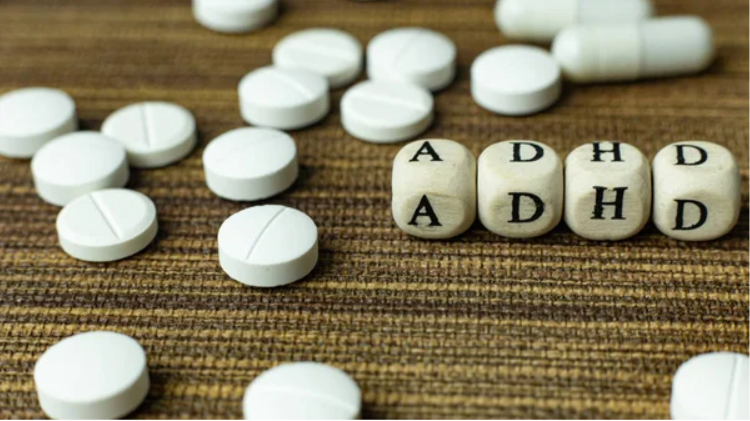Treatment Options for ADHD

Once an individual receives an ADHD diagnosis, the next step is to explore treatment options. While there is no cure for ADHD, a combination of treatments can effectively manage symptoms and improve overall functioning. ADHD treatment typically involves a multifaceted approach that includes medication, therapy, and lifestyle modifications.
Medication
Stimulant medications, such as methylphenidate and amphetamines, are the most commonly prescribed ADHD treatment. These medications work by increasing the levels of certain neurotransmitters in the brain, which can improve attention, focus, and impulse control.
Non-stimulant medications, such as atomoxetine and guanfacine, are also available for individuals who cannot tolerate or do not respond well to stimulants. It’s important to note that medication is not a one-size-fits-all solution, and finding the right medication and dosage may require trial and error under the guidance of a healthcare professional.
Additionally, managing ADHD often involves addressing co-occurring mental illness, which can complicate treatment and require a more comprehensive approach
Therapy
Behavioral therapy is an essential component of ADHD treatment, particularly for children. Therapies such as cognitive-behavioral therapy (CBT) and parent training can help individuals with ADHD develop coping strategies, improve organizational skills, and manage impulsive behaviors. Family therapy can also be beneficial in addressing the impact of ADHD on family dynamics and relationships.
Cognitive-Behavioral Therapy (CBT)
CBT is a type of therapy that focuses on identifying and changing negative thought patterns and behaviors. For individuals with ADHD, CBT can help:
- Improve problem-solving skills
- Develop strategies for managing time and organizing tasks
- Increase self-awareness and self-esteem
- Learn relaxation techniques to manage stress and anxiety
CBT is typically conducted in individual sessions with a trained therapist but can also be adapted for group settings.
Parent Training and Education
Parent training and education programs are designed to help parents and caregivers better understand ADHD and develop effective strategies for managing their child’s symptoms. These programs may include:
- Learning about ADHD and its impact on the family
- Developing positive reinforcement techniques and behavior modification strategies
- Improving communication and problem-solving skills
- Creating a structured home environment with consistent routines and expectations
Parent training and education can be conducted in individual or group settings and may be offered through schools, community organizations, or healthcare providers.
Lifestyle Modifications
In addition to medication and therapy, lifestyle modifications can play a significant role in managing symptoms of ADHD. Some helpful strategies include:
- Establishing a consistent routine and structure
- Breaking tasks into smaller, manageable steps
- Using visual aids and reminders
- Incorporating regular exercise and physical activity
- Ensuring adequate sleep and nutrition
- Minimizing distractions in the environment
Making these lifestyle changes can help individuals with ADHD better navigate their daily challenges and improve overall well-being.
The Importance of a Multimodal Approach
Research has consistently shown that a multimodal approach, combining medication, therapy, and lifestyle modifications, is the most effective way to manage ADHD symptoms and improve overall functioning. By addressing the disorder from multiple angles, individuals with ADHD can develop a comprehensive toolkit of strategies and resources to help them thrive in various areas of life.
It’s important to work closely with a healthcare professional to develop an individualized treatment plan that takes into account the unique needs, preferences, and circumstances of each person with ADHD.
ADHD in Children
ADHD is often first diagnosed in childhood, with symptoms typically appearing before the age of 12. Recognizing the signs of ADHD in children is crucial for early intervention and support. Let’s explore some common ADHD symptoms in kids and how parents and caregivers can provide assistance.
Common ADHD Symptoms in Children
Children with ADHD may exhibit a range of symptoms, including:
- Difficulty paying attention or easily getting distracted
- Trouble following instructions or completing tasks
- Forgetfulness and disorganization
- Excessive talking or interrupting others
- Fidgeting, squirming, or having trouble sitting still
- Impulsive behaviors, such as grabbing or blurting out answers
It’s important to note that not all children with ADHD will display all of these symptoms, and the severity can vary from child to child.
Supporting Children with ADHD
If you suspect your child may have ADHD, the first step is to seek a professional evaluation. Once a diagnosis is made, there are several ways you can support your child:
- Work closely with your child’s healthcare provider to develop an appropriate treatment plan, which may include medication, therapy, or a combination of both.
- Establish a structured routine at home, including consistent meal times, bedtimes, and homework schedules.
- Use positive reinforcement and rewards to encourage desired behaviors and task completion.
- Break tasks into smaller, manageable steps and provide clear instructions.
- Collaborate with your child’s school to ensure appropriate accommodations and support are in place.
Helping Your Child Succeed in School
School can be particularly challenging for children with ADHD, but there are many ways parents and teachers can work together to support their success:
- Communicate regularly with your child’s teacher to stay informed about their progress and any challenges they may be facing.
- Advocate for appropriate accommodations, such as extra time on tests, preferential seating, or modified assignments.
- Help your child develop good study habits and organizational skills, such as using a planner, breaking tasks into smaller steps, and creating a designated study space.
- Encourage your child to participate in extracurricular activities that align with their interests and strengths, as this can boost self-esteem and provide a sense of accomplishment.
- Celebrate your child’s successes, no matter how small, and remind them of their strengths and unique abilities.
Natural Remedies for ADHD

While medication and therapy are the primary treatments for ADHD, some individuals and families may be interested in exploring complementary or natural remedies. It’s crucial to note that these approaches should be used in conjunction with, not as a replacement for, evidence-based treatments and under the guidance of a healthcare professional.
Nutrition and Diet
Some studies suggest that certain dietary changes may help manage ADHD symptoms. These include:
- Consuming a balanced diet rich in fruits, vegetables, whole grains, and lean proteins
- Limiting processed foods, artificial additives, and sugar
- Increasing intake of omega-3 fatty acids, found in fish, nuts, and seeds
- Considering potential food sensitivities and allergies
While research on the impact of diet on ADHD is limited, a healthy, balanced diet can support overall brain function and well-being.
Exercise and Physical Activity
Regular exercise has been shown to improve focus, mood, and self-regulation in individuals with ADHD. Aim for at least 60 minutes of physical activity per day, which can include:
- Outdoor play and sports
- Martial arts or yoga
- Dancing or rhythmic activities
- Family walks or bike rides
Find activities that your child enjoys and that can be incorporated into a regular routine.
Sleep Hygiene
Adequate, quality sleep is essential for brain function and can help manage ADHD symptoms. Establish a consistent sleep routine that includes:
- A regular bedtime and wake time
- A calm, comfortable sleep environment
- Avoiding screens and stimulating activities before bed
- Creating a relaxing bedtime ritual
Aim for the recommended amount of sleep based on age, which ranges from 8-10 hours per night for most children and adults.
Mindfulness and Stress Reduction
Mindfulness practices, such as meditation and deep breathing, can help individuals with ADHD improve focus, regulate emotions, and reduce stress. Some simple mindfulness techniques include:
- Body scans and progressive muscle relaxation
- Guided imagery and visualization
- Mindful breathing and movement
- Gratitude practices
Incorporate these practices into daily routines, such as before bedtime or during transitions, to promote relaxation and self-regulation.
Conclusion
ADHD is a complex neurodevelopmental disorder that affects millions of individuals worldwide. By understanding its symptoms, causes, types, diagnosis, and treatment options, we can better support those struggling with this condition. Whether through medication, therapy, lifestyle modifications, or complementary approaches, there are many ways to manage ADHD and improve overall well-being.
For readers, this knowledge empowers you to make informed decisions about ADHD management, whether for yourself or a loved one. Recognizing the signs and knowing the available treatments can lead to more effective support and better quality of life.
If you or someone you love is experiencing symptoms of ADHD, don’t hesitate to seek professional guidance. Aspire Frisco is here to help. Contact us at 469-249-9363 or email us at info@aspirefrisco.com. Visit our blog for more insights and resources on managing ADHD and other neurodevelopmental disorders.
Frequently Asked Questions
What is Attention Deficit/Hyperactivity Disorder (ADHD)?
ADHD is a neurodevelopmental disorder characterized by persistent patterns of inattention, hyperactivity, and impulsivity that interfere with daily functioning or development. It typically appears in childhood and can persist into adulthood.
What are the common signs and symptoms of ADHD?
Individuals with ADHD may struggle with paying attention, staying organized, following instructions, controlling impulses, and remaining still. They may also exhibit excessive fidgeting, talking, and restlessness.
How is ADHD diagnosed?
ADHD diagnosis involves a comprehensive evaluation by a qualified healthcare professional, such as a doctor, psychiatrist, or psychologist. This evaluation typically includes gathering information about the individual’s medical history, behavior, and symptoms, as well as conducting interviews and using standardized rating scales.
What treatment options are available for ADHD?
ADHD treatment often involves a combination of medication, therapy, and lifestyle modifications. Medications, such as stimulants or non-stimulants, can help improve focus and reduce impulsivity. Therapy, such as cognitive behavioral therapy (CBT), can teach coping skills and strategies to manage symptoms. Lifestyle modifications, such as establishing routines, exercising regularly, and getting enough sleep, can also be beneficial.
Can adults have ADHD?
Yes, ADHD is not limited to children. Although it is typically diagnosed in childhood, ADHD can persist into adulthood, causing significant challenges in personal, social, and professional life. Adults with ADHD may struggle with time management, organization, relationships, and career advancement.






